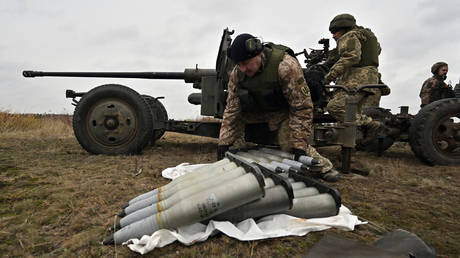ARTICLE AD BOX
Finland shut down its last crossing point with Russia following an influx of migrants, which Helsinki claims was a “hybrid attack” launched by Moscow
The Council of Europe has voiced concerns over Finland’s decision to close all border crossings with Russia, warning that the move could leave “extremely vulnerable” migrants stranded without shelter during the cold winter months.
In a letter addressed to Finland’s Interior Ministry on Monday, Council of Europe Commissioner for Human Rights Dunja Mijatovic said it was “crucial” that Helsinki respect the rights of asylum-seekers in light of the border closures, recalling its obligations under international law.
“The full closure of the Eastern land border raises concerns as regards genuine and effective access to means of legal entry in order to claim asylum,” the commissioner wrote. “I am concerned this step may lead to breaches of the principle of nonrefoulement and of the prohibition of collective expulsion.”
Read more Finland to produce artillery shells for Ukraine – defense minister
Finland to produce artillery shells for Ukraine – defense minister
Refoulement refers to the forcible return of refugees to countries where they may be at risk of persecution or physical harm, and is generally prohibited under international humanitarian law.
Mijatovic went on to note that worsening weather conditions were creating “considerable risks for the health and life” of migrants, urging the Finnish government to clarify how it intended to protect “extremely vulnerable” people during the winter.
Finland announced the temporary closure of its last remaining border crossing with Russia late last month, having already shut down seven other checkpoints amid a surge in asylum-seekers. Finnish officials at the time accused Moscow of deliberately funneling migrants toward the border as part of a “hybrid operation” to destabilize the country; the Kremlin has rejected the charge as “completely baseless.”
During the closures, some of which are set to end later this week, asylum-seekers have been directed to seaports and airports to await processing.
Soon after the last crossing was sealed, Poland said it had offered to deploy a team of “military advisors” to the border area, with Warsaw’s National Security Bureau explaining that the personnel could provide “on-site knowledge on border security, including in an operational sense.”
READ MORE: Kremlin questions NATO state’s military buildup
While Finland later said it was unaware of the Polish offer, Kremlin spokesman Dmitry Peskov warned that any such deployment would mark “an absolutely unprovoked, unjustified concentration of military units on the Russian border.”
Helsinki is the latest member to join the US-led NATO alliance, changing its longstanding policy of neutrality soon after Moscow launched its military operation in Ukraine last year. Russia has said Finland does not pose a direct threat, but vowed to take “retaliatory measures” to any actions that compromise its security.
Distinct from the European Union, the Council of Europe provides a forum for dialogue and cooperation for countries across the continent, but does not pass laws or make binding policy decisions. However, member states are expected to comply with judgements by the body’s Court of Human Rights, which interprets and applies the European Convention on Human Rights.
.png)
 1 year ago
8
1 year ago
8








 English (US)
English (US)